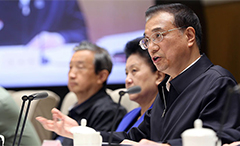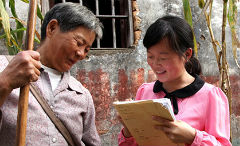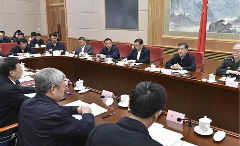China to use resource development for poverty relief
english.gov.cn 2016-10-18
China plans to better benefit the impoverished population by establishing a distribution system of profits earned through resource development in poor regions, according to a circular released on Oct 18.
The plan is aimed at encouraging economic organizations and individuals in poor regions to voluntarily participate in local resource development, including water, electricity and minerals, while seeking targeted poverty relief through distributing profits to registered low-income families.
The plan will be tested in a three-year trial period from 2016 to 2019.
During the trial period, the plan will only target concentrated poverty-stricken areas and key projects under national anti-poverty and development. Priority will be given to poor counties located in old revolutionary bases and ethnic regions.
The number of pilot projects across the nation will be under 20, which will include water, electricity or mining projects occupying rural collective land. These pilot projects should meet standards set by related planning, industrial policies and environmental protection laws and satisfy basic requirements in several aspects such as construction scale, requisition of land, construction period and profitability. And there are no specific requirement on the ownership of project undertakers.
According to the circular, assets that can be invested in the resource development are limited to land compensation fees for non-construction land, which is entrusted to rural collective economic organizations.
The plan also listed the entities that are qualified to be stakeholders and beneficiaries of development projects. The rural collective economic organizations will be stakeholders and registered low-income families the first beneficiaries.
Members of rural collective economic organizations, especially registered impoverished families, should be entitled to participate in the management and profit-sharing of the collective equity over development projects. And their rights and interests should be protected by law.
In addition, the circular requires that policy measures, operation guidelines and actual implementation advice should be provided to further ensure the success of the pilot program.




